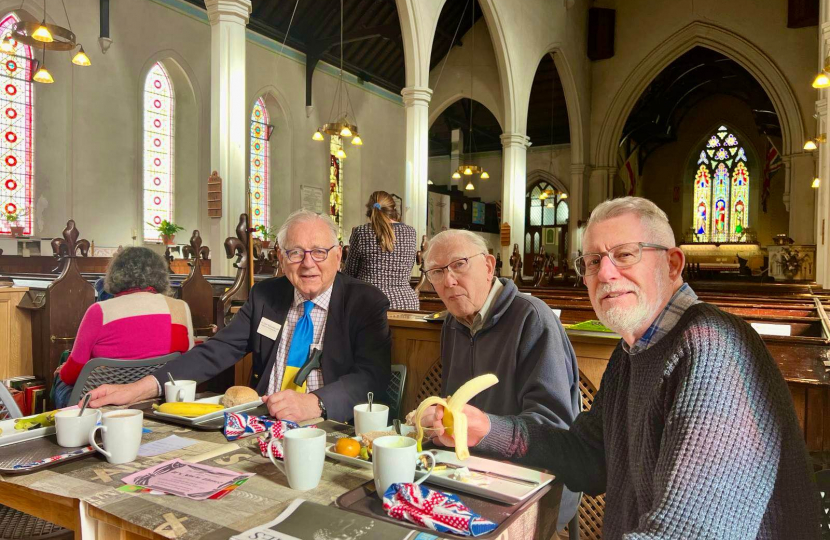
Parliament and government came close to fixing Easter in 1928, at least for the western Christian churches. Easter Sunday can be one of 35 days in March or April causing difficulties for secular events such as academic terms. Many Eastern churches use the Julian or the Revised Julian Calendar, celebrating Easter on a later day.
In the year 325 AD or CE, The Council of Nicaea decided to have Easter on a common day, no longer tying it to the Jewish calendar: Passover is later this year. Muslims’ Ramadan cycles through the year, so the hours vary for daily fasting.
Before our traditional extended family gathering for Easter Day, I joined a packed Good Friday Service for the Stations of the Cross and the Mass in the Syro-Malabar liturgy at St Mary of the Angels by the potholes in Worthing’s Richmond road.
The autonomous church is in full communion with the Holy See. Malabar is modern Kerala, one of the most admirable states in India. The congregation included impressively behaved children. Their parents can be proud of them; they are fortunate in their parents.
After Indian independence, some protestant churches united to form the Church of South India, with the motto ‘That They All May Be One.’ I regret that the proposed union of the Church of England with the Methodists was frustrated, in part by an Anglican bishop who later turned to Rome. There is nothing to criticise in conversion: if he had transferred earlier, protestant churches could have come together.
During my adult life, there is growing, welcome collaboration between denominations and cooperation between faiths, as there is between people in different political groupings.
People of many nationalities have come together to feed the starving and to bring relief to the population of Palestinians in the constricted Gaza Strip. More than 200 relief workers have died.
On Tuesday the world heard the news of the attack, presumed to be by the Israel Forces, on aid workers with the World Central Kitchen, founded in 2010 to prepared food in Haiti when afflicted by the major earthquake. The founder, chef Jose Andres, should be considered for a Nobel Prize. The organisation he inspired has organised meals in Latin and north America, Africa, southeast Asia and Europe - Ukraine. World Central Kitchens staff had produced 32 million meals in Gaza before their own tragedy.
Terrible things happen in war. My father was trained for advanced scouting behind enemy lines. His colonel never slept through the night after watching half his men killed in a mistaken blue-on-blue attack by American planes.
One of my daughter’s school friends was Tom Hurndall, a photography student. He died twenty years ago. He was an activist volunteer against Israeli occupation of Palestinian lands. His mother Jocelyn wrote the story of his life and tragic death. His sister works for the group Medical aid for Palestinians.
Tom was with others in a peace tent near Rafah in 2003, blocking IDF tank patrols. When shooting started, the activists sought cover. Tom ran into the street to save two children. He was shot in the head, dying after nine months in a coma. Tom’s father told the inquest: ‘Tom went to take one girl out of the line of fire, which he did successfully, but when he went back, as he knelt (to collect another), he was shot.
After all kinds of stories, the sniper was convicted of manslaughter, obstruction of justice, giving false testimony and inducing comrades in his unit to bear false witness.
The terrible attack on 7 October last year was calculated by Hamas leaders intentionally to bring an awful response. The task now is to have a sustained end to violence, to restore humane living conditions to Palestinians, and for Israelis to have recognition and the guarantee of peace.



